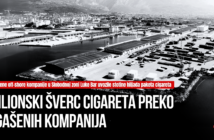Defense and the Last Days
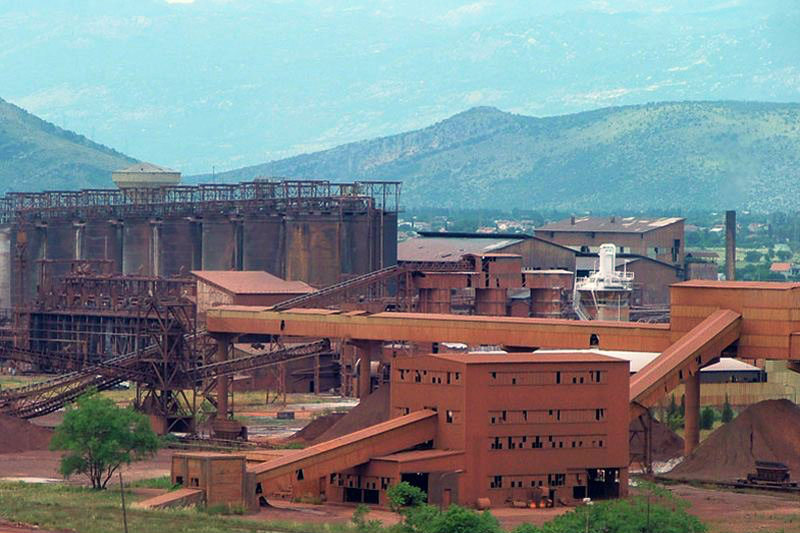 Instead of a strategic investor and a modern factory Montenegro obtained new, bigger problems. Since the end of last year the cart of KAP went downhill. The management stopped paying the bills for electricity, masout, railroad transport, warehousing and transhipment in the Port of Bar … There is no money on the accounts of the Plant even for salaries
Instead of a strategic investor and a modern factory Montenegro obtained new, bigger problems. Since the end of last year the cart of KAP went downhill. The management stopped paying the bills for electricity, masout, railroad transport, warehousing and transhipment in the Port of Bar … There is no money on the accounts of the Plant even for salaries
The new owners took over KAP on December 1 2005, after almost one year of negotiations with the representatives of the Tender Commission. Director of the Agency for Economic Restructuring and Foreign Investments Branko Vujović reported that an order was given to transfer 58.5 million Euros to the accounts of the state funds. Out of this, 48.5 million is the price agreed for the shares of KAP, six million for the shares of the Mine, while four millions were the initial concession compensation for bauxite. In addition, the Government obtained a “present” of 20 million euros from Oleg Deripaska as support to provide for disabled workers, repayment of “pre-sanctions debts” towards the London club (even though, according to the statements of Montenegrin authorities those debts had already twice been ,,removed from the agenda”).
In the meantime, the Russians signed a revised contract on reprogramme of debt with the main creditors of KAP, the Swiss Glencore, Podgorica Vektra and the London Standard Bank. The total debt of KAP to these companies, said Vujović, would fall by the end of the year “from the current 90 to 87 million dollars, not taking into account the discount of around ten percent accepted by Vektra and the Standard Bank”.
Montenegrin officials report that the purchase agreement achieved the set objectives of KAP privatisation: a strategic partner ready to invest into modernisation and development was secured, there is yet to resolve the accumulated ecological problems in the Zeta plane, the company has paid off its debts …
Still, doubts were not removed.
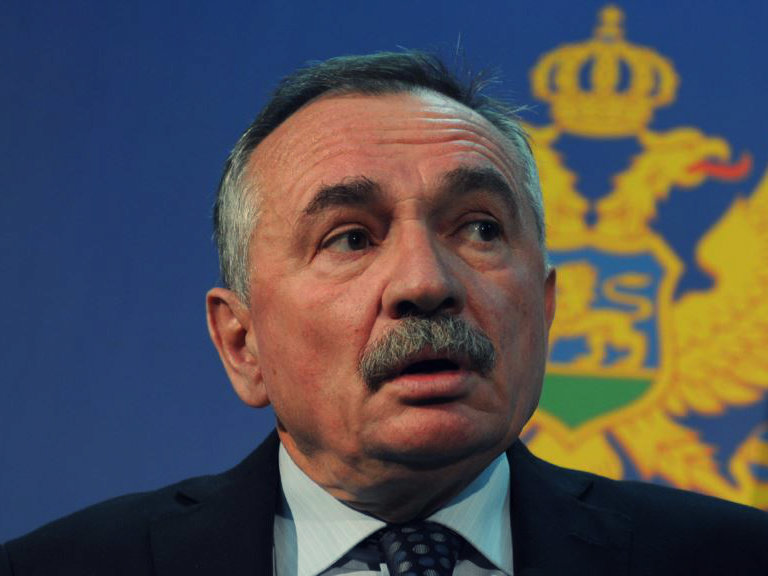 During privatisation, assessments were revealed that more than 100 million euros would have to be allocated for modernisation of KAP. Still, the new owner took the obligation to invest half of that amount. ,,Besides, those 55 million are not to be invested all at once, but in the period of five years. “Too little and too slowly to modernise the biggest Montenegrin factory”, wrote Monitor at that time, “Rusal does not hide – it is not interested in processing, but only in the production of primary aluminium and alumina”. Professor Branko Radulović confirms this. He says: ,,The structure and dynamics of agreed investments show that Montenegrin aluminium will not be processed in Montenegro in the future either”.
During privatisation, assessments were revealed that more than 100 million euros would have to be allocated for modernisation of KAP. Still, the new owner took the obligation to invest half of that amount. ,,Besides, those 55 million are not to be invested all at once, but in the period of five years. “Too little and too slowly to modernise the biggest Montenegrin factory”, wrote Monitor at that time, “Rusal does not hide – it is not interested in processing, but only in the production of primary aluminium and alumina”. Professor Branko Radulović confirms this. He says: ,,The structure and dynamics of agreed investments show that Montenegrin aluminium will not be processed in Montenegro in the future either”.
The agreed amount for ecological problems is also problematic. According to expert assessments the investments for ecological protection should have amounted to more than 100 million. Instead of that, except for the obligations taken over by the Government, the contract only mentions the amount of 20 million euros. “The buyer of KAP is allegedly requested to improve ecological standards and raise them to the level of current EU norms”, writes Monitor: “How to control the correctness of factory operation if it does not have the use permit. The Deputy Prime Minister of Montenegro Branimir Gvozdenović, instead of an answer, reproaches that it is “not wise” to ask such questions at the moment when negotiations with the potential buyer entered the decisive phase.”
SUBSIDIES: No doubt most disputes were caused by the agreed arrangement for supply of the Plant with electric energy. It was decided to apply the formula which will “connect” the price of the kilowatt with the stock exchange price of aluminium, while an obligation was imposed on EPCG to deliver the agreed quantities of energy to KAP by 2010 (from 2/3 to ½ of the total annual consumption) notwithstanding the cost effectiveness of such an arrangement.
The fact that Branimir Gvozdenović, President of the Board of Directors of EPCG, was the head of the Tender Commission was not of much use for that company.
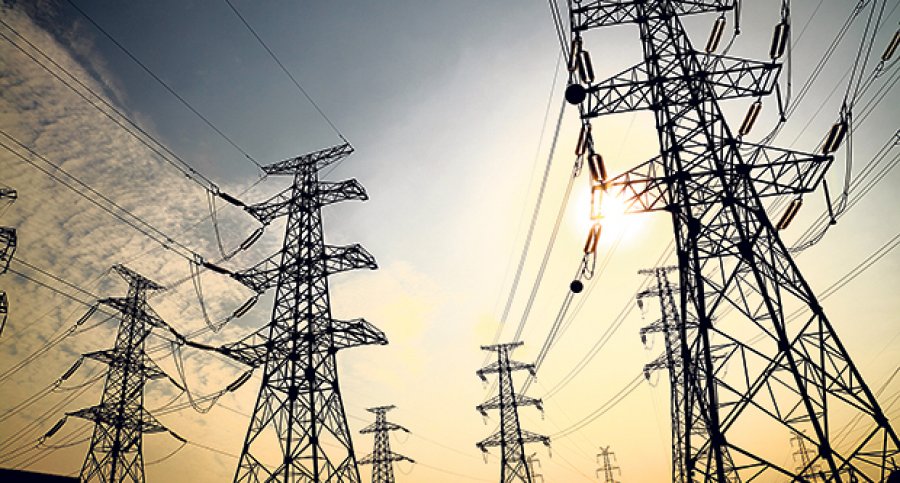 It soon turned out that both parties were not satisfied with that part of the contract. Independent calculations showed that through the arrangement with KAP, EPCG lost after privatisation close to 100 million Euros (in relation to the price of imported energy), while in the Plant they calculated that KAP pays for electricity the price higher than any other electrolysis plant in the world.
It soon turned out that both parties were not satisfied with that part of the contract. Independent calculations showed that through the arrangement with KAP, EPCG lost after privatisation close to 100 million Euros (in relation to the price of imported energy), while in the Plant they calculated that KAP pays for electricity the price higher than any other electrolysis plant in the world.
Soon after the agreement was signed, the Government made a decision on reconstruction and electrification of the railroad Podgorica – Nikšić, which was to be financed by a 45 million credit obtained from the Czech Republic. In the meantime the costs rose by almost one half. Since the main users of that railroad are KAP and the Bauxite Mine, it seemed to be one more proof of the solid partnership of Montenegrin authorities and the new owners of the Plant.
Actually, doubts increased of people from Montenegrin authorities or their closest surroundings being present in the ownership structure of Solomon, the off-shore company registered as the owner of the majority package of shares of KAP. ,,The contract says that En plus group is the owner of only 67 percent of Solomon”, warned Nebojša Medo¬jević. ,,Therefore, we doubt that these 33 percent is the corruption provision of someone from Montenegrin authorities that will later be bought-off by the Russians. The same scheme was used for mobile telephony, Ironworks, Arsenal Tivat…Someone of the local players ‚builds himself into the deal´ as the co-owner of an off-shore company and that share is later sold to the real owner for several millions”, states Medojević.
PROBLEMS ROSE TO SURFACE: While the Plant, owing to the record prices of aluminium at the London Stock Exchange, recorded the best business results in its history, the workers of KAP started strike. The Striking Board and the Management could not agree on the amount of severance pay for redundant employees. The management offered severance pay from 10 to 15 thousand Euros, and the employees’ representatives asked from 19 to 26 thousand Euros.
The next surprise arrived in August 2006, when the KAP management reported that the last year in which it was managed by the Government, the Plant ended the year with a loss of 147.9 million Euros! After the loss was registered, the balance of accounts of this company was almost halved. At the end of the year the assets of the company were corrected in the books and reduced from 297.8 million Euros to only 159,1 million. The new owner informed the Government it found out that, on the occasion of purchase of KAP, “it was not presented the real state”. That dispute remained hidden from the public in the following two years.
This is why the information that KAP was not, as it was claimed, freed from debts towards the “main creditors” was worth paying attention to. It turned out that only the address of the payee had changed. Instead to Vektra, Glencore and the Standard Bank, the Plant was now paying off its debt or around 100 million to its majority owner – Salomon Enterprise. The Government did not want to comment on whether this “migration of debts” was in compliance with the sale agreement.
Still, the year 2006 will be remembered as the most successful business year of the Aluminium Plant. KAP made a profit bigger than 80 million Euros before depreciation and taxation costs, i.e, a net profit of around 55 million. Today, when KAP has not paid its employees, electricity, masout, transport services and contributions for months – many ask where has that money ended?
This is just another mystery of KAP.
AGREEMENT THAT FELL THROUGH: The relations between the Russians and the Government became additionally colder after the Parliament of Montenegro (with the support of the deputies of SDP) forced the Government to annul the tender for the sale of the Thermal Power Plant in Pljevlja and a part of the shares in the Coal Mine. DPS was forced to accept that decision.
There are doubts in the public that during privatisation of KAP, the energy complex in Pljevlja was promised to Deripaska. These doubts became even stronger when the Government decided to annul the first tender at which the Czech Energy Company (ČEZ) gave an approximately equal or even better offer than Rusal
,,En plus group is disappointed by the decision of Montenegrin authorities to stop privatisation of the Thermal Power Plant and the Coal Mine in Pljevlja”, stated the President of the Board of Directors of the Aluminium Plant Podgorica and the Buaxite Mine Kaha Ava¬lijani. Since then, warnings have periodically arrived from the management of KAP that the issue of long term supply with electricity has not been resolved, and that the high price of electricity may lead to interruption of production in KAP.
Rumours took full swing, so in summer 2008, the Prime Minister Milo Đukanović too felt the need to deny them: ,,Management of the Aluminium Plant is not thinking about closing down the factory and sees a good perspective for that production in Montenegro and at the international market”. It soon turned out that the reality is much different.
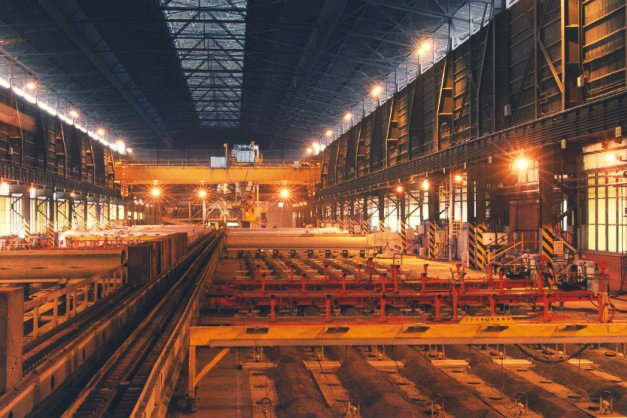 Already at the beginning of September it was revealed that the Russians (in the meantime renamed Central European Aluminium Company – CEAC ) initiated a procedure before the International Arbitrage in Frankfurt and asked compensation of damages from the Government of Montenegro, the Agency for Economic Restructuring and Foreign Investments and former owners of KAP: Development Fund, Pension and Disability Fund and the Employment Agency. If the Arbitrage Court in Germany accepted in entirety the indictment request, sale of the majority package of shares of KAP and the minority share in Nikšić Bauxite Mines would cost Montenegro around 370 million Euros. It is obvious from the indictment request that the lawyers of CEAC ask from the Arbitrage Court to ,,order to the sued parties to solidarly and individually’’ pay to the accuser 205.9 million Euros. According to the same request, KAP should receive, partly in money, partly in writing off of the existing claims, additional 131.2 million Euros and two million dollars, and the Bauxite Mines 31.5 million Euros.
Already at the beginning of September it was revealed that the Russians (in the meantime renamed Central European Aluminium Company – CEAC ) initiated a procedure before the International Arbitrage in Frankfurt and asked compensation of damages from the Government of Montenegro, the Agency for Economic Restructuring and Foreign Investments and former owners of KAP: Development Fund, Pension and Disability Fund and the Employment Agency. If the Arbitrage Court in Germany accepted in entirety the indictment request, sale of the majority package of shares of KAP and the minority share in Nikšić Bauxite Mines would cost Montenegro around 370 million Euros. It is obvious from the indictment request that the lawyers of CEAC ask from the Arbitrage Court to ,,order to the sued parties to solidarly and individually’’ pay to the accuser 205.9 million Euros. According to the same request, KAP should receive, partly in money, partly in writing off of the existing claims, additional 131.2 million Euros and two million dollars, and the Bauxite Mines 31.5 million Euros.
At the beginning the Government ignored and laughed at this request commenting that it has no grounds in the sale agreement. However, things changed, so the owners of KAP were set a condition that, if they want Government support in overcoming the current crisis in the company, they had to interrupt the arbitrage proceeding in Frankfurt. At the same time, the Government responded with the 200 million Euros worth counter-complaint.
Autumn brought new, bad, news. The Shareholders’ Assembly accepted the request of the minority shareholders formulated by Miroslav – Purko Jeličić: ,,In the present situation characterised by expensive electricity and cheap stock exchange price of the white metal, KAP should reduce the production by at least 50 percent – to the level of 60 thousand tons per year.”
That decision was contrary to the provisions of the purchase agreement (production must not be reduced to less than 2/3 of the production from 2005 without consent of the Government). This was, actually, only continuation of contract violation by the owners of KAP which began practically, immediately after taking over of the plant and the Mine. Namely, it turned out that the state shares were paid by a credit taken at the expense of production and property of the Plant. The creditors were paid on the same principle. In addition, credits worth approximately 300 million Euros were taken. Where did this money end?
CRISIS AND DEBTS: Into investments intended for factory modernisation – not, since CEAC did not fulfil the investment plan.
According to the claims of the Plant the production price of an aluminium ton is around 3.000 dollars or almost twice more than at the time before privatisation (1650 dollars per ton). The owners of KAP are paying a ton of bauxite to themselves around 60 instead of former 26 Euros. At the time of privatisation KAP had 3.010 employees. Today, together with the employees in the processing plants, it has 2.700.
Since the end of last year, and the fall of aluminium price at the stock exchange, the cart of KAP went downhill. First, the workers of Forging Plant (92) were sent to one year forced holiday. Thus the only installation of the Aluminium Plant that had a use permit stopped work. Then the management ceased paying the bills for electricity, masout, railroad transport, warehousing and transhipment in the Port of Bar. Debts to these companies reached 40 million dollars.
There is no money on the accounts of the Plant even for the salaries. The workers received the latest salary with big delay, after KAP, with the assistance of the Government, secured money from the banks with which it was already (heavily) encumbered with debts.
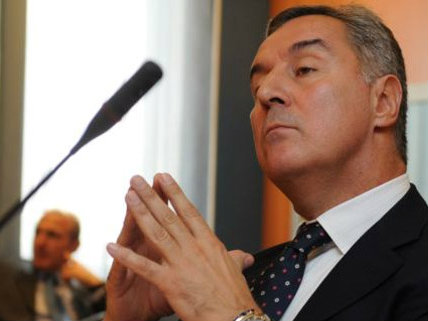 By the end of March, and on the eve of parliamentary elections, the Prime Minister Đukanović stated that the Government was to provide 41 million Euros from the budget for severance pay for workers of KAP and four related companies who want to leave their work position with compensation ranging from six to 15 thousand Euros. The Prime Minister stressed this was ,,an offer of responsible authorities ready to help”. In this year budget, 2.5 million Euros are planned for these purposes.
By the end of March, and on the eve of parliamentary elections, the Prime Minister Đukanović stated that the Government was to provide 41 million Euros from the budget for severance pay for workers of KAP and four related companies who want to leave their work position with compensation ranging from six to 15 thousand Euros. The Prime Minister stressed this was ,,an offer of responsible authorities ready to help”. In this year budget, 2.5 million Euros are planned for these purposes.
,,Responsible Government does not service the social programme for redundant workers of a private company with the money of tax payers”, commented the professor of the University Mediterranean Milenko Popović.
,,Depending on the direction in which the situation will be unfolding in the following days, the state may in some form take over the management of the factory”, stated in March the Deputy Prime Minister and the Minister of Finance Igor Lukšić. Describing the situation in KAP as ,,critical’’, Lukšić commented on several months long negotiations between the Government and the owner of the Plant, which are not giving any results – except for accumulated debts – of KAP. ,,If we cannot reach an agreement that will protect the state interests and secure support to that company, the state will take over the management of KAP in an adequate form and begin resolving the problems”.
KAP responded with the statement that the government is trying to chase away the investor that brought to Montenegro around 400 million Euros. Workers are preparing to fight again for payment of salaries through protests in front of the Government building.
The story of Aluminium Plant going to ruin continues. There are still no calculations on what consequences would cause its closing down or the maintenance of a technologically obsolete factory. Who, after Vektra, Glencore and Rusal, will be the new “saviour”? Or, will the circle close.

